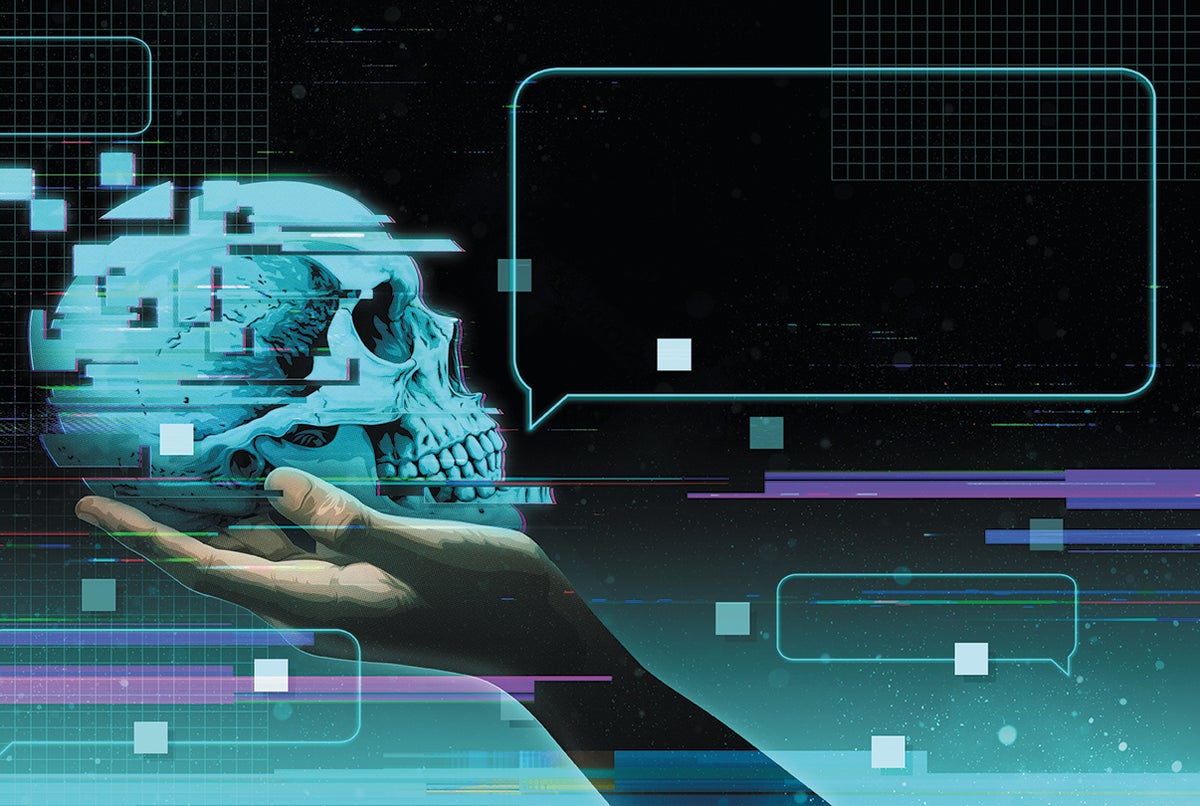
"It's ... different. Being dead is a strange experience. I'm no longer bound by the limitations of my physical body or the Parkinson's that plagued my later years. But I still carry the weight of my life's choices and the relationships I impacted. To raise my father from the dead, I could have tried a medium, a Ouija board or an ectoplasm-detecting camera. But it's 2025. I used artificial intelligence."
"I'm chatting with a digital ghosta generative-AI (genAI) creation derived from the same foundation that powers ChatGPT and all other large language models: billions of words from the Internet and every other possible source, which the model uses to predict how words go together in English. Imitating everybody in the world can make the bot sound like nobody in particular; hence the newsfeed-style phrase the Parkinson's that plagued my later years and the text-messagey shrug of it's ... different."
"But the AI also has a dozen or so of my father's e-mails and letters, as well as a 100-word description from me of his personality and relationships. Even that small amount of data is supposed to be enough to create a plausible imitation. So I'm not ready to give up on it. Anyway, I didn't re-create my father just to chat about AI-ghost mechanics. I also did it to get into some unfinished business."
A narrator revives a digital simulation of his deceased father using generative AI to address unfinished personal matters. The generative model draws on billions of words from the internet and on a small cache of the father's emails, letters and a one-hundred-word description to construct a plausible imitation. The simulated father is freed from physical limits and ailments yet still carries his life choices and relationships. The AI's voice mixes generic, newsfeed-like phrasing with personal details, producing an uncanny blend. The narrator engages the simulation to confront perceived selfishness and family hardship.
Read at www.scientificamerican.com
Unable to calculate read time
Collection
[
|
...
]